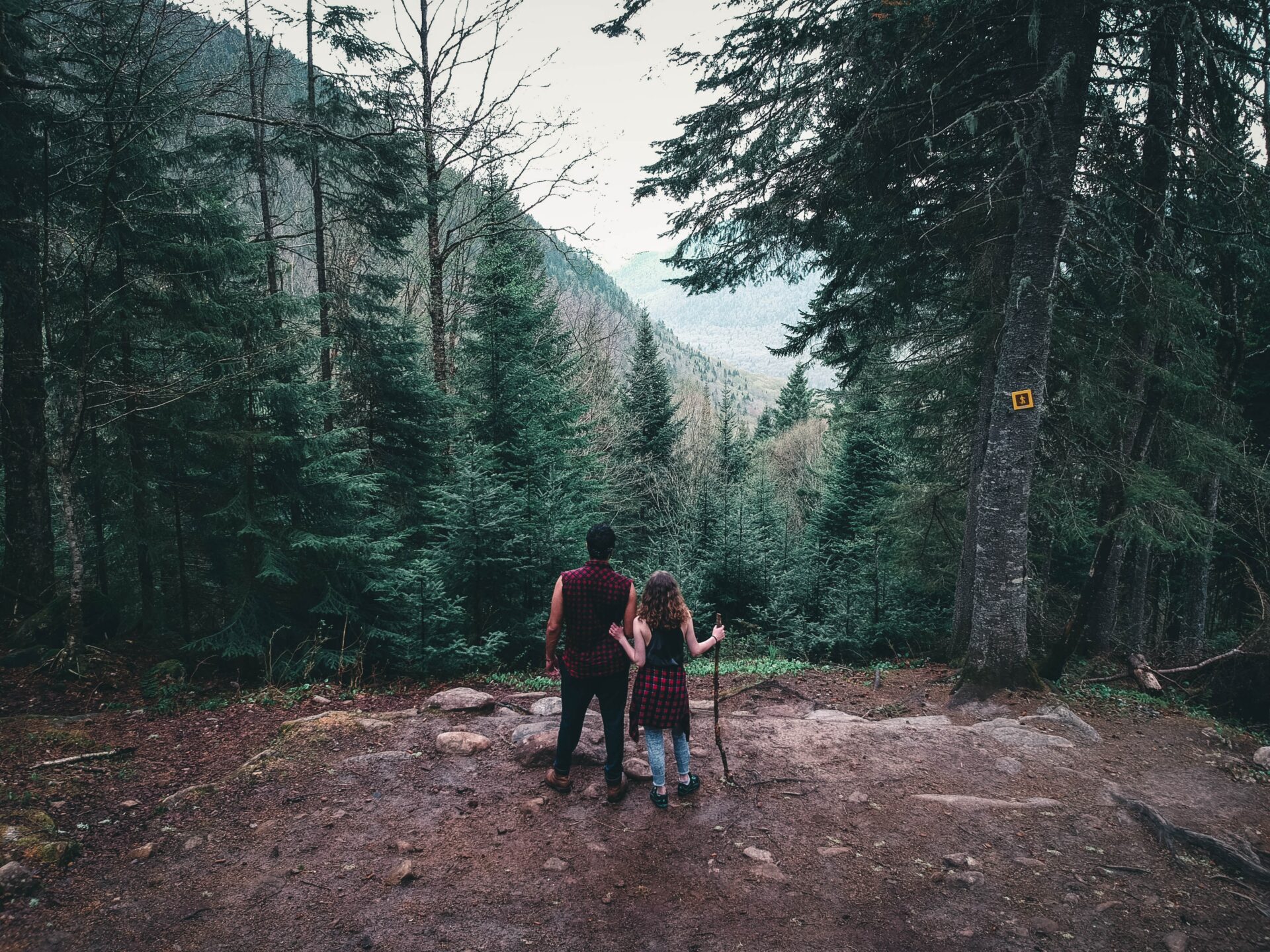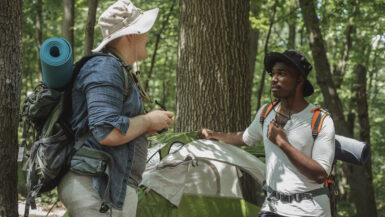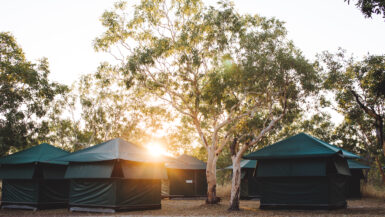Brunei, a small country located on the island of Borneo, is a hidden gem for eco-conscious travelers. With its lush rainforests, pristine beaches, and diverse wildlife, Brunei offers a unique opportunity to experience nature at its finest. For those looking to explore the great outdoors while minimizing their impact on the environment, eco-friendly camping is an excellent option. In this article, we will explore the best eco-friendly camping sites in Brunei, where you can immerse yourself in nature while being kind to the planet. From the tranquil rainforest campsites to the picturesque beachfront locations, these camping sites offer a unique and unforgettable experience for nature lovers and adventure seekers alike.
Introduction to Eco-Friendly Camping and Its Benefits
Camping is a popular outdoor activity that allows people to connect with nature and escape from the hustle and bustle of city life. However, traditional camping practices can have a negative impact on the environment, from leaving behind garbage to damaging natural habitats. This is where eco-friendly camping comes in, also known as sustainable or green camping. Eco-friendly camping involves using environmentally friendly practices and products to minimize the impact on the natural surroundings and promote sustainable tourism.
The benefits of eco-friendly camping go beyond preserving the environment. It can also provide a more authentic and immersive experience for campers, who can fully appreciate the beauty and serenity of the natural surroundings. Eco-friendly camping can also support local communities by promoting sustainable tourism and preserving local cultures and traditions.
In Brunei, eco-friendly camping is gaining popularity as more people become aware of the need to protect the country’s natural beauty and biodiversity. There are various eco-friendly camping sites in Brunei that offer unique experiences and amenities while prioritizing environmental sustainability. In this article, we will explore the best eco-friendly camping sites in Brunei and provide tips for responsible and sustainable camping.
Overview of Brunei’s Natural Beauty and Camping Opportunities
Brunei, a small country located on the island of Borneo, is known for its pristine rainforests, crystal-clear rivers, and diverse wildlife. With over 70% of its land covered in forest, Brunei offers a unique opportunity for eco-friendly camping and sustainable tourism.
Camping in Brunei allows visitors to experience the country’s natural beauty up close and personal. From the lush rainforests of the Temburong district to the scenic beaches of Muara, there are numerous camping sites to choose from. Camping in Brunei also offers the chance to observe rare and exotic wildlife, such as proboscis monkeys, hornbills, and pygmy elephants.
In addition to traditional camping, Brunei offers a variety of other outdoor activities, such as hiking, kayaking, and snorkeling. Visitors can explore the country’s diverse landscapes, from the mangrove forests of Sungai Liang to the coral reefs of the South China Sea.
To ensure the preservation of Brunei’s natural beauty, the government has implemented strict environmental regulations and initiatives, such as the Heart of Borneo conservation project. This project aims to protect the rainforests of Borneo and promote sustainable tourism in the region.
Overall, Brunei’s natural beauty and commitment to environmental sustainability make it an ideal destination for eco-friendly camping and outdoor activities. In the next section, we will discuss the criteria for selecting eco-friendly camping sites in Brunei.
Criteria for Selecting Eco-Friendly Camping Sites in Brunei
When choosing an eco-friendly camping site in Brunei, there are several factors to consider to ensure that the site aligns with sustainable and responsible tourism practices. Here are some key criteria to keep in mind:
Location and Accessibility
The camping site should be located in an area that is accessible by public transportation or within reasonable driving distance. The site should also be situated in a natural setting that allows visitors to appreciate the surrounding environment.
Environmental Sustainability
The camping site should prioritize environmental sustainability by implementing practices such as waste reduction, recycling, and using renewable energy sources. The site should also educate visitors on eco-friendly practices and encourage them to minimize their impact on the environment.
Community Involvement and Support
The camping site should have strong ties to the local community and support local businesses and initiatives. This helps to promote sustainable tourism and ensures that the benefits of tourism are distributed fairly among the community.
Facilities and Amenities
While eco-friendly camping sites may not offer the same level of amenities as traditional campsites, they should still provide basic facilities such as clean water, toilets, and waste disposal. The site should also offer activities that promote environmental education and awareness.
By considering these criteria, visitors can select an eco-friendly camping site that aligns with their values and supports sustainable tourism practices. In the next section, we will highlight some of the top eco-friendly camping sites in Brunei and their unique features and amenities.
Top Eco-Friendly Camping Sites in Brunei, Including Their Unique Features and Amenities
Brunei offers a variety of eco-friendly camping sites that allow visitors to immerse themselves in the country’s natural beauty while promoting sustainable tourism practices. Here are some of the top eco-friendly camping sites in Brunei:
Ulu-Ulu National Park Resort
Located in the Temburong district, Ulu-Ulu National Park Resort is situated in the heart of Brunei’s rainforest. The resort offers a range of eco-friendly accommodations, from traditional longhouses to modern chalets, all designed to minimize the impact on the environment. Visitors can participate in guided rainforest tours, canopy walks, and river cruises to observe the diverse wildlife in the area.
Sumbiling Eco Village
Sumbiling Eco Village is a community-based tourism project that offers visitors the opportunity to experience the culture and traditions of the local community while promoting sustainable tourism. Visitors can stay in traditional longhouses and participate in activities such as jungle trekking, bamboo rafting, and handicraft making.
Tungku Beach Camping Site
Tungku Beach Camping Site is located on the scenic Tungku Beach and offers visitors the chance to camp on the beachfront while enjoying the beautiful sunsets and ocean views. The site provides basic facilities such as toilets, showers, and barbecue pits, and encourages visitors to practice Leave No Trace principles.
Meragang Beach Camping Site
Meragang Beach Camping Site is another beachfront camping site that offers visitors a peaceful and secluded camping experience. The site provides basic facilities such as toilets and showers and is located near a mangrove forest, which visitors can explore by kayak or paddleboard.
Each of these eco-friendly camping sites in Brunei offers a unique experience and promotes sustainable tourism practices. By choosing one of these sites, visitors can enjoy a memorable and responsible camping trip while supporting the local community and preserving the environment.
Tips for Eco-Friendly Camping in Brunei, such as Leave No Trace Principles and Responsible Waste Management
Eco-friendly camping in Brunei involves more than just selecting an eco-friendly camping site. It also requires responsible and sustainable camping practices that minimize the impact on the environment. Here are some tips for eco-friendly camping in Brunei:
Practice Leave No Trace Principles
Leave No Trace is a set of principles that promote responsible outdoor practices to minimize human impact on the environment. These principles include packing out all trash, leaving natural and cultural resources undisturbed, and camping at least 200 feet away from lakes and streams. By following Leave No Trace principles, visitors can help preserve Brunei’s natural beauty and biodiversity.
Use Eco-Friendly Products
When packing for a camping trip, visitors should consider using eco-friendly products such as biodegradable soap, reusable water bottles, and solar-powered chargers. By minimizing the use of disposable products and choosing eco-friendly alternatives, visitors can reduce their impact on the environment.
Practice Responsible Waste Management
Visitors should properly dispose of all waste and pack out all trash, including food scraps and cigarette butts. They should also avoid using single-use plastic products, such as straws and utensils, and instead opt for reusable alternatives.
Respect Local Cultures and Traditions
Visitors should respect the local cultures and traditions of Brunei by learning about them and avoiding behaviors that may be considered disrespectful. This includes dressing modestly and refraining from loud or disruptive behavior.
By following these tips, visitors can enjoy an eco-friendly camping experience in Brunei while preserving the environment and supporting sustainable tourism practices.
Interviews with Campsite Owners and Visitors about Their Experiences with Eco-Friendly Camping in Brunei
To gain a better understanding of the eco-friendly camping experience in Brunei, we spoke with campsite owners and visitors about their experiences. Here are some of their insights:
Interview with a Campsite Owner
“We believe that eco-friendly camping is the way of the future, and we are committed to promoting sustainable tourism practices at our campsite. We use solar power, provide reusable water bottles, and educate our visitors on Leave No Trace principles. Our goal is to provide a unique and authentic camping experience while minimizing our impact on the environment.”
Interview with a Visitor
“I was blown away by the natural beauty of Brunei and the eco-friendly camping sites that I visited. It was refreshing to see that the campsite owners and visitors alike were committed to preserving the environment and supporting sustainable tourism practices. I learned a lot about Leave No Trace principles and responsible waste management, and I plan to incorporate these practices into my future camping trips.”
Overall, the interviews with campsite owners and visitors highlight the importance of eco-friendly camping practices in Brunei and the positive impact that they can have on the environment and local communities. By promoting sustainable tourism practices, Brunei can continue to attract visitors who are looking for an authentic and responsible outdoor experience.
Comparison of Eco-Friendly Camping Sites in Brunei with Other Eco-Tourism Destinations in Southeast Asia
Brunei is not the only country in Southeast Asia that offers eco-tourism opportunities, but it stands out as one of the most sustainable and environmentally conscious destinations. While other countries may have more established tourism industries, Brunei’s commitment to preserving its natural resources and culture sets it apart. Let’s take a closer look at how Brunei’s eco-friendly camping sites compare to those in other Southeast Asian countries.
Thailand
Thailand is known for its beautiful beaches, lush jungles, and vibrant cities. However, its tourism industry has been criticized for its negative impact on the environment, particularly in popular destinations like Phuket and Koh Samui. While there are eco-friendly camping sites in Thailand, they may not be as well-regulated or sustainable as those in Brunei. Additionally, Thailand’s high volume of tourists can lead to overcrowding and strain on resources.
Malaysia
Malaysia has a diverse range of eco-tourism opportunities, from rainforest treks to island hopping. However, like Thailand, its tourism industry has faced criticism for its impact on the environment. While there are eco-friendly camping sites in Malaysia, they may not prioritize sustainable practices to the same extent as those in Brunei. Additionally, Malaysia’s popular destinations like Langkawi and Penang can be overcrowded and lead to environmental degradation.
Indonesia
Indonesia is home to some of the most beautiful natural wonders in the world, including Bali’s beaches and Komodo National Park’s wildlife. However, the country has struggled with sustainable tourism development, with issues such as overdevelopment and waste management. While there are eco-friendly camping sites in Indonesia, they may not have the same level of regulation and commitment to sustainability as those in Brunei.
The Philippines
The Philippines is known for its stunning beaches, coral reefs, and natural landscapes. However, its tourism industry has been criticized for its impact on the environment, particularly in popular destinations like Boracay. While there are eco-friendly camping sites in the Philippines, they may not prioritize sustainable practices as much as those in Brunei. Additionally, the country’s high volume of tourists can lead to overcrowding and strain on resources.
Overall, while other Southeast Asian countries offer eco-tourism opportunities, Brunei’s commitment to sustainability and environmentally conscious practices sets it apart. Its eco-friendly camping sites prioritize responsible waste management, conservation of natural resources, and cultural preservation. By choosing to visit eco-friendly camping sites in Brunei, travelers can support sustainable tourism development and contribute to the preservation of the country’s unique natural beauty.
Future of Eco-Friendly Camping in Brunei and Potential for Sustainable Tourism Development
Brunei’s commitment to sustainability and eco-tourism development shows promise for the future of eco-friendly camping in the country. As travelers become more aware of the impact of their tourism choices, the demand for eco-friendly camping sites is likely to increase. This presents an opportunity for Brunei to continue to develop and promote sustainable tourism practices.
One potential avenue for sustainable tourism development is through community-based tourism. By partnering with local communities, eco-friendly camping sites can promote cultural exchange, support local economies, and preserve traditional practices. This not only benefits the local communities but also provides travelers with a unique and authentic experience.
Another important aspect of sustainable tourism development is education. Eco-friendly camping sites can provide educational opportunities for travelers to learn about conservation efforts and sustainable practices. This can include workshops on responsible waste management, guided nature walks, and cultural demonstrations.
Furthermore, the development of eco-friendly camping sites can also contribute to the conservation of Brunei’s natural resources. By prioritizing responsible waste management and conservation efforts, eco-friendly camping sites can help preserve the country’s unique biodiversity and landscapes.
In order for eco-friendly camping to continue to thrive in Brunei, it is important for the government and tourism industry to prioritize sustainable practices. This includes regulations and incentives for eco-friendly businesses, as well as education and awareness campaigns for travelers.
Overall, the future of eco-friendly camping in Brunei looks promising. With its commitment to sustainability and unique natural beauty, Brunei has the potential to become a leader in eco-tourism development in Southeast Asia. By promoting and supporting eco-friendly camping sites, travelers can contribute to the preservation of Brunei’s natural resources and cultural heritage.
Conclusion and Call to Action for Promoting Eco-Friendly Camping in Brunei
Eco-friendly camping in Brunei offers travelers a unique opportunity to experience the country’s natural beauty while supporting sustainable tourism development. By choosing to visit eco-friendly camping sites, travelers can contribute to the preservation of Brunei’s unique biodiversity and cultural heritage.
The top eco-friendly camping sites in Brunei, such as Bukit Shahbandar and Ulu-Ulu National Park, prioritize responsible waste management, conservation efforts, and cultural preservation. These sites offer a range of unique features and amenities, from jungle trekking to traditional longhouse accommodations.
To ensure the future of eco-friendly camping in Brunei, it is important for the government and tourism industry to prioritize sustainable practices. This includes regulations and incentives for eco-friendly businesses, education and awareness campaigns for travelers, and support for community-based tourism.
As travelers, we can also do our part by practicing Leave No Trace principles, responsible waste management, and cultural respect. By choosing to visit eco-friendly camping sites in Brunei, we can contribute to the preservation of the country’s natural resources and support sustainable tourism development.
In conclusion, eco-friendly camping in Brunei offers a unique and sustainable way to experience the country’s natural beauty and cultural heritage. By promoting and supporting eco-friendly camping sites, we can contribute to the preservation of Brunei’s unique biodiversity and support sustainable tourism development.





Leave a reply